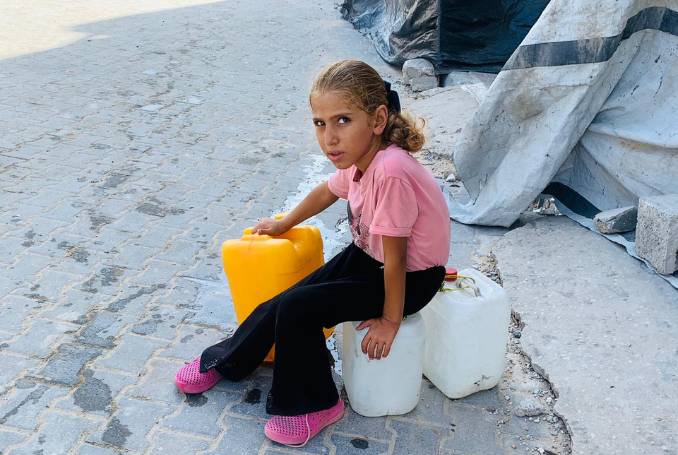
Israeli Prime Minister Benjamin Netanyahu has decided to not approve the entry of mobile homes and heavy equipment into Gaza.
The number of aid trucks entering the Gaza Strip over the past two days has not exceeded 30 percent of the expected volume, the Gaza Media Office has warned, citing Israeli restrictions on the entry of humanitarian supplies.
💢 Over the past two days, only 30% of expected aid trucks have entered Gaza, with fewer than 180 trucks arriving, far below the daily quota of 600
Gaza Media Office cites Israeli restrictions on the entry of humanitarian supplies https://t.co/cPOvssuXol pic.twitter.com/oj5ImRvWsu
— Anadolu English (@anadoluagency) February 17, 2025
In a statement on Sunday, the Media Office said the enclave received fewer than 180 trucks, far below the daily quota of 600 set under a ceasefire agreement between Israel and the Palestinian Resistance movement Hamas.
Mobile Homes, Heavy Machinery Denied
The Times of Israel, citing the Israeli KAN public broadcaster, reported on Sunday that Israeli Prime Minister Benjamin Netanyahu did not approve the entry of mobile homes and heavy equipment into Gaza during security consultations the night before.
The Israeli prime minister Netanyahu refuses to give approval for mobile homes and earthmoving equipment to enter Gaza which is part of the commitments of the ceasefire agreement and attached humanitarian protocol. pic.twitter.com/IGE2fZFY7o
— Eye on Palestine (@EyeonPalestine) February 16, 2025
“Following a security consultation chaired by the prime minister, it was decided that the issue of caravans will be discussed in the coming days. Israel is fully coordinating with the United States,” an official reportedly told KAN.
Call to Mediators
The head of the Media Office, Salama Maarouf, slammed Israel’s refusal to approve the entry of the mobile homes and heavy equipment as “a clear evasion of its pledges and obligations that it signed within the ceasefire agreement and the attached humanitarian protocol.”
It was “an explicit declaration of its failure to the agreement, which the resistance confirmed it will abide by its pledges as long as the occupation abides by them.”
AID is still not getting in to #Gaza for Palestinians despite what the media might tell you. Based on the information supplied by all the agencies on the ground this is the situation for tents. Fuel desperately needed and that’s not getting in either. pic.twitter.com/XNFZivtM2g
— Yvonne “Newcastle” Ridley (@yvonneridley) February 16, 2025
“This refusal shows the whole world who is the party obstructing the agreement, which requires the guarantor mediators to intervene and pressure the occupation to fulfill what it signed,” Maarouf stressed.
He pointed out that the catastrophic living conditions that “our people are experiencing in Gaza as a result of the war of genocide and the humanitarian suffering they are enduring cannot tolerate procrastination, hesitation, or evasion of bringing in all the requirements for shelter and other needs.”
Maarouf called on the mediators and the international community “to stand up to their responsibilities and respond immediately to the priorities that the Gaza Strip needs … by pressuring the occupation and obliging it to stop evading its pledges.”
Hamas’ Concerns
Hamas has repeatedly highlighted Israel’s obstruction of aid entering the Gaza Strip, particularly aid related to shelter which worsens the suffering of the population.
Saturday’s captive exchange was initially put on hold by Hamas due to Israel’s violations of the ceasefire agreement including the obstruction of the entry of relief supplies into the enclave.
Breaking the Truce: Hamas Documents Some 270 Israeli Ceasefire Violations
According to the Times of Israel, the “apparent refusal by the premier to approve the entry of the equipment to the Strip comes as Netanyahu reportedly wants to extend the current first phase of the deal beyond the designated 42 days, which are set to end on March 1, and secure the freedom of more hostages as part of phase one.”
No Potable Water
Meanwhile, the mayor of Jabaliya has said there was no potable water in the northern Gaza Strip and sewage is spreading among people.
He said the area was suffering from the lack of sufficient quantities of diesel and rubble removal mechanisms.
🚨 Mayor of Jabalia, Northern Gaza:
—
There is no potable water in the northern Gaza Strip and sewage is spreading among people.The northern Gaza Strip is suffering from the lack of sufficient quantities of diesel and rubble removal mechanisms.
Municipalities cannot manage… pic.twitter.com/3i7vgoA43L
— Dr. Renee Levant (@ReneeLevant) February 16, 2025
Tents, mobile homes and rubble removal machines have not entered the north, he noted.
On Saturday, the Palestinian Resistance released three Israeli captives as part of the sixth prisoner exchange under the first phase of the ceasefire deal, which took effect on January 19.
Ceasefire Violations Documented
Hamas has documented 269 Israeli violations of the ceasefire since then, including killings, bombardments, aid restrictions, and continued attacks beyond Gaza.
In a document that was provided to Palestine Chronicle and other media outlets by a Hamas official, the Palestinian movement presented a list of the kinds of ways that Israel has been violating the terms of the ceasefire/prisoner-exchange agreement ratified in January.
🌍 “Today I am Palestinian, Tomorrow I am Palestinian!” – Former Turkish Prime Minister Ahmed Davutoğlu made waves with his recent statement about Gaza’s future. 💬
Following his proposal for Gaza to hold a ‘referendum’ to join Türkiye as an autonomous region until a Palestinian… pic.twitter.com/WheaiTG5Ku
— The Palestine Chronicle (@PalestineChron) February 15, 2025
The document breaks down the number of ceasefire violations, recorded at 269 between January 19 and February 11, as well as provides five separate categories of violations that either directly violate or violate the spirit of the deal. The categories include:
- Field Violations
- Prisoners
- Humanitarian Aid
- Denial of essential medical supplies
- Political violations
The Hamas document also details 22 ways in which the ceasefire has been violated, fitting inside the above-mentioned categories.
(PC, Anadolu)
